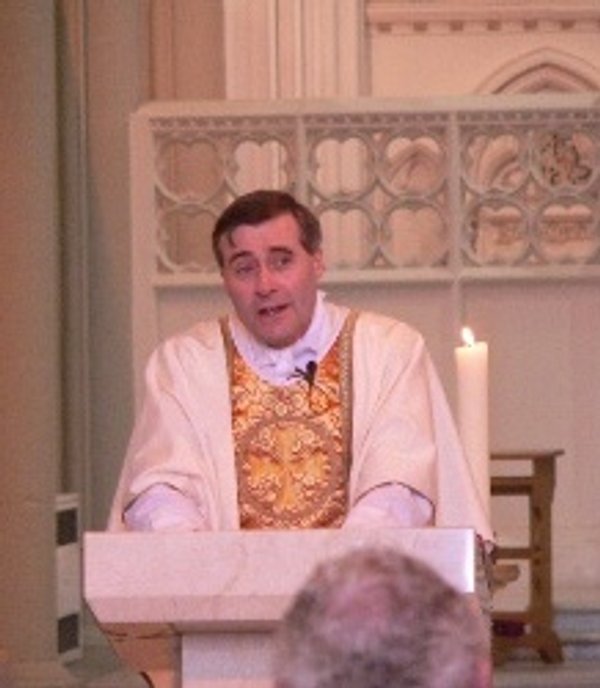On the motorway coming into Manchester the other evening the sun was beginning to sink below the horizon and it seemed just for those few minutes that even the motorway bridges, the pylons, the concrete walls took on a new, almost unearthly light. And it struck me that it wasn't only the eye of an artist like an LS Lowry or a Harold Riley that could see those bleak landscapes so transformed but it was how St Josemaria called us to see the ordinary scenes of our own lives, even the dullest: the office, the lecture hall, the ward, the pile of washing or ironing, even the M60 on a Friday evening - all of them in a different light.
And, of course, almost fifty years ago he came, not along the M60, but a little farther along this road which leads to our Bishop's House. And what did he see in these bustling streets, in the scarred industrial landscape of the Manchester and Salford of half a century ago "not a very nice place", as a Royal visitor once described it? No, I've little doubt he saw, what he always did see in the scenes of human life the call in our own busy streets and homes,in our places of business and learning to go in search of Love which he'd spell with a capital "L". God who is Love to be found not somewhere else more beautiful, more extraordinary but amidst what he called the richness of ordinary life. "Do everything for Love's sake and do it freely", he would say, and the gloomiest ways of the earth will be so transfigured. For despite the devastation of sin we are called, as we'd been first called in Eden, to offer our work, our whole lives to God.

St Therese of Lisieux once pictured us like tiny children sat on the floor and offering our parents the small toys we'd received from them - but now offered with all the love of a child. And to be able to offer to our Father all we have, even the smallest and most insignificant things we must have entered into that same relationship, know our dignity as sons and daughters of God, that dignity restored in Christ, as the Apostle Paul declared: "the spirit you received is not the spirit of slaves...; it is the spirit of sons and it makes us cry: 'Abba, Father!'" (Rom. 8:14). That is what our Saint cried inwardly in a moment of special grace not, in the stillness of a church or oratory but appropriately on a city tram "Father, Father, Father! Joy and deep peace, I am a son, a child of God." In that confidence all can be given, all can be ventured with love.
For to know our worth, to know our calling doesn't leave us indifferent to all who live and work beside us. Recently two visitors drove-up to Manchester from Stansted Airport and coming into the city they phoned to say they were admiring the beautiful view of the Sea. They were not in Manchester at all - they were in Liverpool! But there is a sea in Manchester of a different kind, a sea which is not beautiful, as Pope Benedict described on the day of his installation: "we are living in alienation, in the salt waters of suffering and death, in a sea of darkness without light. The net of the Gospel pulls us out of the waters of death and brings us into the splendour of God's light, into true life." And we are called to be "fishers of men" alongside Peter and the other Apostles, "bringing men and women" in the Holy Father's words, "out of the sea that is salted with so many forms of alienation and onto the land of life, into the light of God." How could we refuse such a call? To stand with Peter and to stay with him today: Lord "at your word, I will let down the nets."
St Josemaria is no longer on the A6 to encourage us in this task he's now so much closer to us all. And as the urban scene he'd once glimpsed from the window of a car gives way to what we might almost call "a new city" rising beyond the doors of our Cathedral it seems we now hear his voice even more clearly across those thirty years. A voice which calls us again today by our prayer, mortification and daily work to light-up those ways of the earth with faith and with love.
St Josemaria, pray for us!
